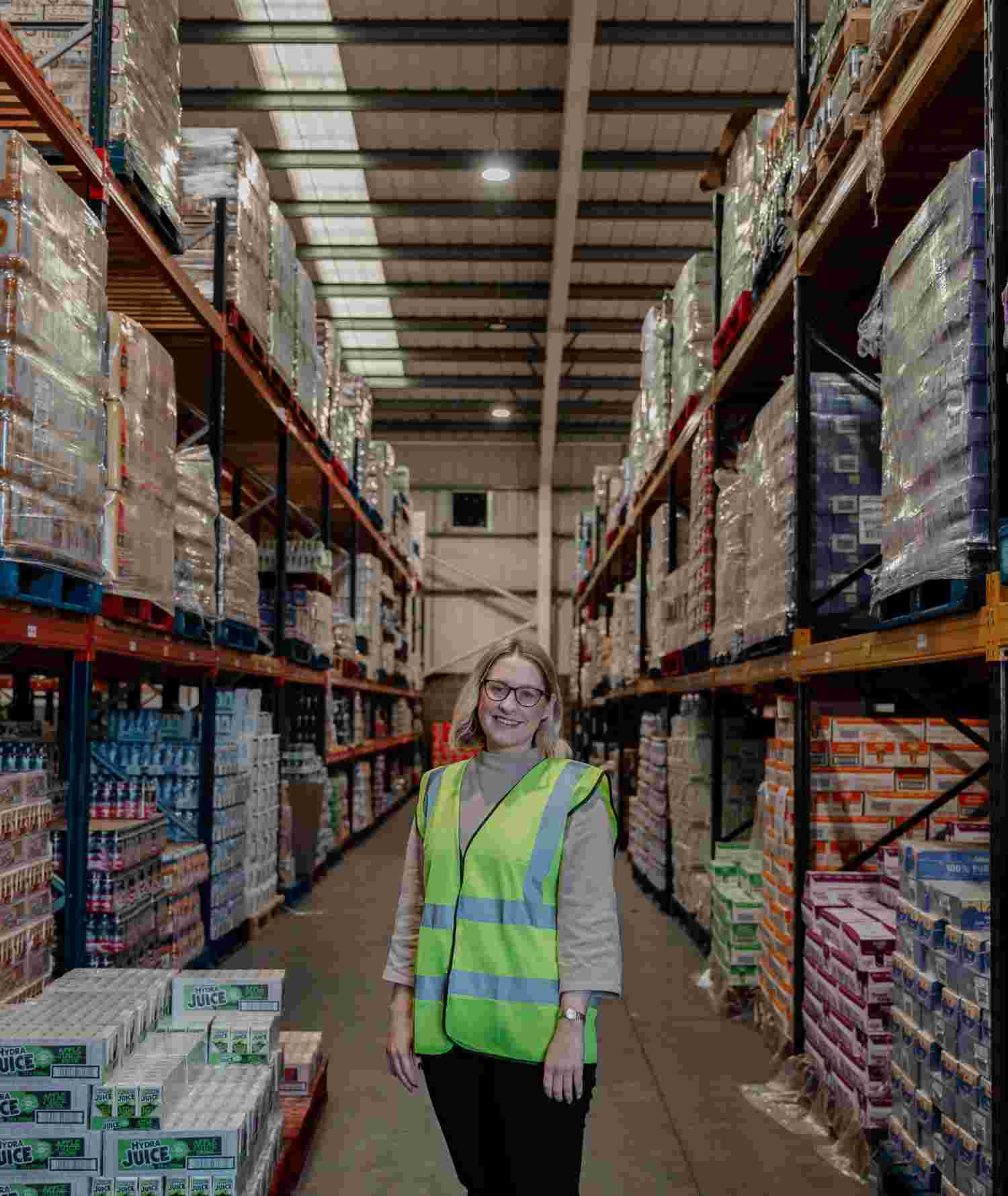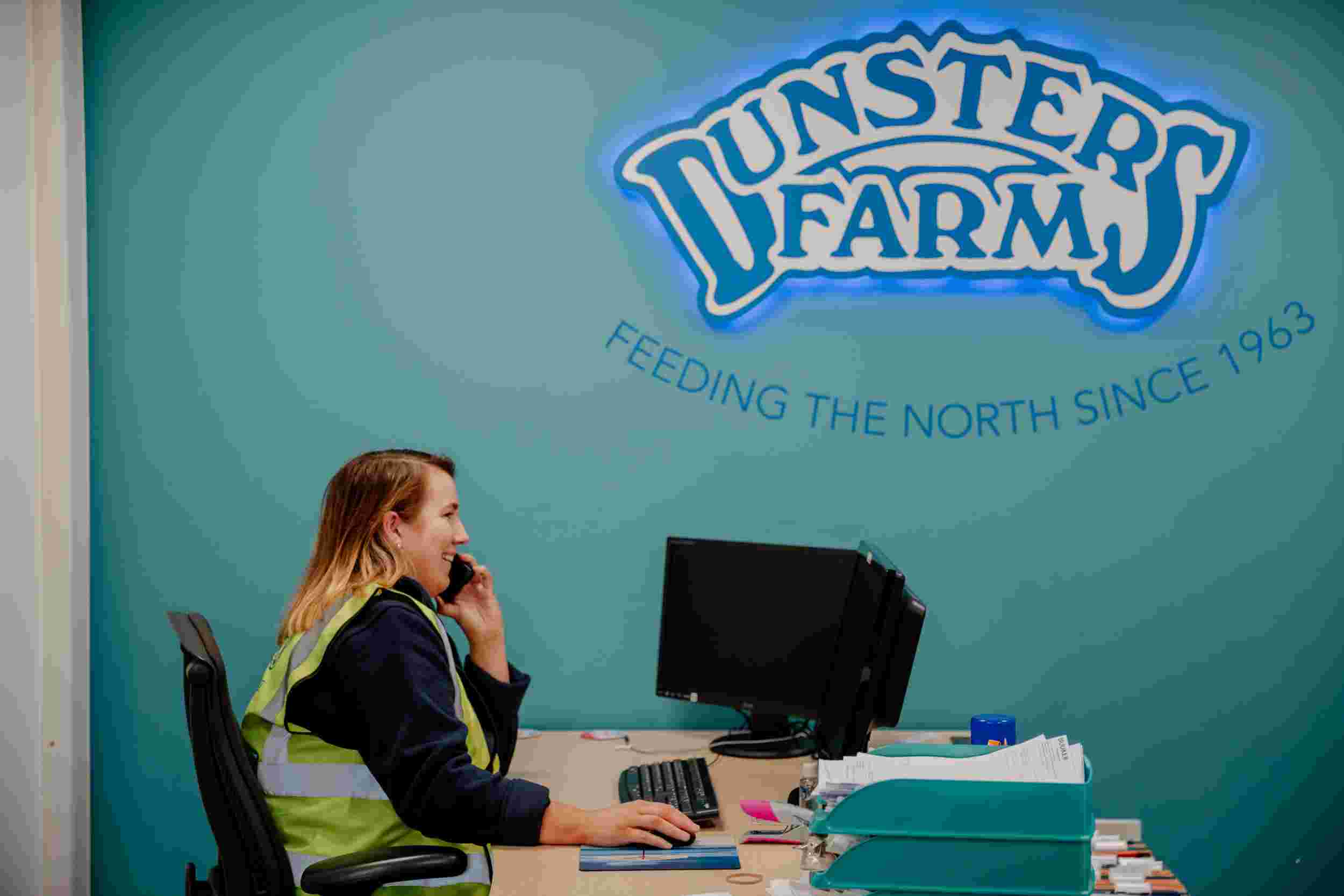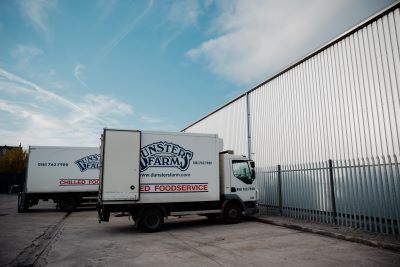Agility, a refusal not to be constrained by fixed long-term plans, and a strategic collaboration with Manchester Metropolitan University are behind one of Greater Manchester’s biggest success stories.
When we put to Dunsters Farm’s commercial director Tom Mathew that the business actually grew – from 48 employees to 53 – either side of COVID, he points out that since 2021 the rise has been exponential. “Now we’re at about 110,” says the Bury-born 36-year-old. “And I’ve had a forecast from HR that it’ll be around 150 by early-2024. So, yeah, more headaches and more money,” he smiles, with typically dry Greater Manchester wit.
“It’s good, obviously, and it’s what we want to do – create quality jobs and grow in a way that benefits everyone. By making the business better, we’ll improve things for everybody who works here.”
Tom runs the foodservice company alongside his sister, Hannah Barlow; “I’m more ‘long-term future’ and ‘supplier side’, she’s more ‘day to day’ and ‘customer side’”, he explains. Since the pair took up their posts in late-2014, turnover has shot up by roughly 600%.
As we find out below, this exceptional growth, flying in the face of the widespread business challenges of the last few years, has been achieved through a willingness to challenge the status quo, an openness to seeking external support, and the outright rejection of just carrying on like they always have.
With a cutting-edge new ecommerce platform launching in August 2023 and a two-year university collaboration helping to inject industry-leading practices and processes within the business, Tom and his team have been on a journey that other SMEs can undoubtedly learn from.

“They’re like a trusted friend, not only providing help when we need it, but also connecting us with other sources of support and funding too.”
Tom Mathew, Commercial Director, Dunsters Farm
Digital innovation
A third-generation family wholesale business that started life in the 1950s as a milk round, Dunsters supplies a range of fresh and chilled food and drinks to business customers across the North from its base near the M66.
The company was on track for a record month in March 2020, after winning new contracts within the education sector and the NHS. Then the pandemic hit and suddenly 95 per cent of its customers had to close their doors because of lockdown restrictions.
With consumer panic around the scarcity of essentials, Tom recognised they could do something to help the local community: “We had people coming into the yard asking to buy food from us, and we had supplies in the warehouse that were no longer needed by the schools and hospitals which make up 70% of our customer base. So, we decided to do our bit to help.”
If they were to do this effectively, Dunsters needed a B2C, public-facing website separate to their existing B2B site. Not having the necessary ecommerce expertise inhouse to know how to tackle this immediate challenge, they sought support from GM Business Growth Hub’s digital innovation specialists. (Find out how your SME can tap into fully-funded digital innovation support here)
Two weeks later, the new site was up and running and Dunsters was for the first time selling directly to the public, who could order online and collect from the warehouse, or book home deliveries if they were self-isolating or shielding.
As Tom’s sister, Hannah, later reflected (read the full interview from 2020 here): “Through Chris Murphy (digital innovation specialist at the Business Growth Hub), we had a brilliant sounding board.
“We had never done anything like this, so having someone to talk to who had the experience, who had the contacts, and who had worked with other people who have had a similar journey, was just what we needed. It took much of the stress out and was a massive help.

“The Hub helped us with our ERP (Enterprise Resource Planning) system, as well as providing digital processes mapping support. We were surprised how quickly the ecommerce shop escalated and with the Hub’s help we successfully marketed the new service through social media.
“We had a good story to tell, and we got more coverage in the local press in six weeks than we did in 60 years.”
The benefits of being agile
At the peak of the pandemic, Dunsters was serving around 200 households a week, as well as organising school food parcels for low-income families and corporate hampers for homeworkers. However, as the restrictions eased, the business saw its new customers gravitating back towards the supermarkets, and it soon became clear that the B2C marketplace wasn’t the right fit.
Tom says: “We’d entered unchartered territory. Part of us thought that maybe the world was changing and we could move into the B2C environment. But, in the end, we couldn’t compete with the biggest retailers in the country, who’ve got the biggest ranges in pack sizes for domestic use, as well as huge marketing and e-commerce spends.”
The venture was slowly wound down, but Tom has absolutely no regrets about trying something new. Not only did it keep the staff active at a time of great uncertainty, help the local community and gain valuable publicity for the company, but the experience threw up priceless lessons that have helped make Dunsters even stronger.
“There’s a real story here about the underlying principle of being agile,” Tom says. “Our experience shows that you can move into a new area and if it doesn’t work you can move back – it’s a two-way door. Provided you're flexible, and you're not committed to something that's going to lose your money, it’s okay to ‘fail’ at it. You learn and you move forwards.”
A specialist team from the Business School worked with Tom’s team on a wide array of projects with the overarching aim of embedding a culture of continuous improvement. One particular project is their new B2B website, which is a bespoke build, developing what Tom describes as “the best website out there – a market-first”.
“For five years or so we had around 20% of our orders coming in online, which is not particularly low within foodservice, but obviously is for retail in general,” says Tom. “With strategic initiatives to promote and incentivise its use, we’re aiming to get 60% of our sales coming through the new platform within six months. We firmly believe that once customers use it, their experience will be enhanced and they will use it again.”
Dunsters’ ambitions haven’t stopped there.

Adapting to the net zero challenge
Focussed on improving competitiveness, productivity and performance practices, mKTPs are flexible and able to adapt to changing business priorities. So when the government announced its net zero strategy in 2021, Dunsters could draw on the mKTP to rebuild its management strategy.
“We had previously been recognised for our commitment to reducing our environmental impact, but all of a sudden with the 2050 net zero commitment, it suddenly became an even bigger focus,” says Tom. “And, credit to the University, they’ve allowed us to morph the mKTP into addressing our net zero and carbon reduction plans.”
“Through the mKTP, we‘ve had an engineer embedded in the business, someone with a completely different skillset to what you normally get in foodservice, who can dig down into the calculations around carbon reduction and energy saving. This has been incredibly useful in shaping our net zero agenda.”
Advice for SMEs
So, having gone through an incredible period of growth, what advice does Tom have for other small or medium-sized businesses in Greater Manchester?
“If you don't innovate, you eventually won’t be there,” he says, before the question is even finished. “The world changes and you have to respond. We were a family business that always had a sector of the market and just did what we always did. But I didn’t want us to risk trying to get away with continuing on like that. There are too many examples of businesses like that which end up disappearing.
“So my first bit of advice is to innovate – whether that’s in product lines, processes or anything else. The second thing is to engage with GM Business Growth Hub. The breadth of the business support they’ve given is amazing.

“They’re like a trusted friend, not only providing help when we need it, but also connecting us with other sources of support and funding too. They’ve found grants and low hanging fruit that we never would’ve found out about on our own.
“We first started partnering with them in 2019 and they’ve been brilliant all along .”
Get in touch
Please contact us at 0161 3593050 or query below.
Take that first step and we’ll support you with whatever you need to succeed.
Sign-up to our newsletter
Insights, news, events and opportunities straight to your inbox.